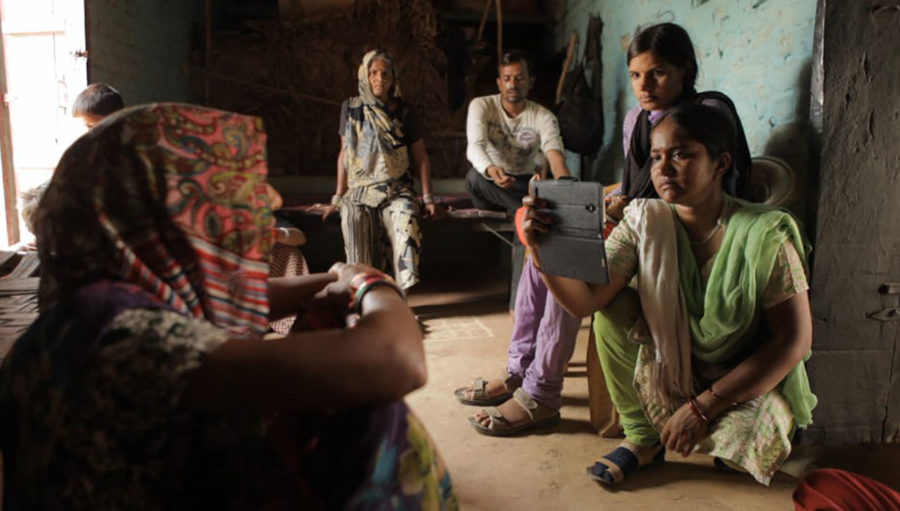Khabar Lahariya, the rural, women-led media house and the subject of the Indian Oscar-nominated documentary feature Writing with Fire, has called out the makers for inaccurately representing them.
“It is a story which captures a part of ours, and part stories have a way of distorting the whole sometimes,” stated the media house, on Monday.
Further, Khabar Lahariya described itself as a “team of Dalit-led, but also Muslim, also OBC, also upper-caste women”, and noted that it has had a diverse newsroom for two decades. However, the Rintu Thomas and Sushmit Ghosh-directorial defines the documentary as one that revolves around “India’s only newspaper run by Dalit women.”
Commenting on the tone of the documentary, the organisation said, “We had a chance to watch the entire film as an organisation recently, and we would like to make our views clear. The film is a moving and powerful document, but its presentation of Khabar Lahariya as an organisation with a particular and consuming focus of reporting on one party and the mobilisation around this, is inaccurate.”
Moreover, they went on to acknowledge the right of independent filmmakers to present a story as per their vision but added that it would overshadow the work that the organisation has done for twenty years and why they were different from mainstream media publications.
“It has not been about sweeping into the rallies and offices of just one particular political party and asking difficult questions,” they stated and added that the organisation has strived to form “complex friendships and relationships” in the field of journalism, especially with major Indian political parties including, the Bahujan Samaj Party, the Samajwadi Party, the Bharatiya Janata Party, the Congress, the Peace Party, the Ambedkar Samaj Party, the Bundelkhand Mukti Morcha, the Swatantra Janta Party, the Rashtriya Lok Dal, the Jan Adhikar Party, and the Bhim Army.
Khabar Lahariya also critiques the film, which had won two awards at the 2021 Sundance Film Festival, for revealing identities of survivors of rape and assualt, while they had worked to always safeguard them.
Recommended
The organisation further went on to note that Writing with Fire has reportedly downplayed the struggles faced by women journalists. They mentioned, “We have not, as the film would have one believe, been able to carry our caste identities on our sleeves, with bravado and humour. We have had to be discreet, often fearful.”
“And even if we have written and reported from our particular caste identities, we have upheld the right to protect our families’ privacy, especially our children’s, who will come into these battles in their own ways,” they added.
With the 94th edition of the Oscars scheduled to be held a week later, Khabar Lahariya seeks to engage with a dialogue on “what makes women-led, independent rural media possible – which is a much more complex story than the one going to the Oscars.”



